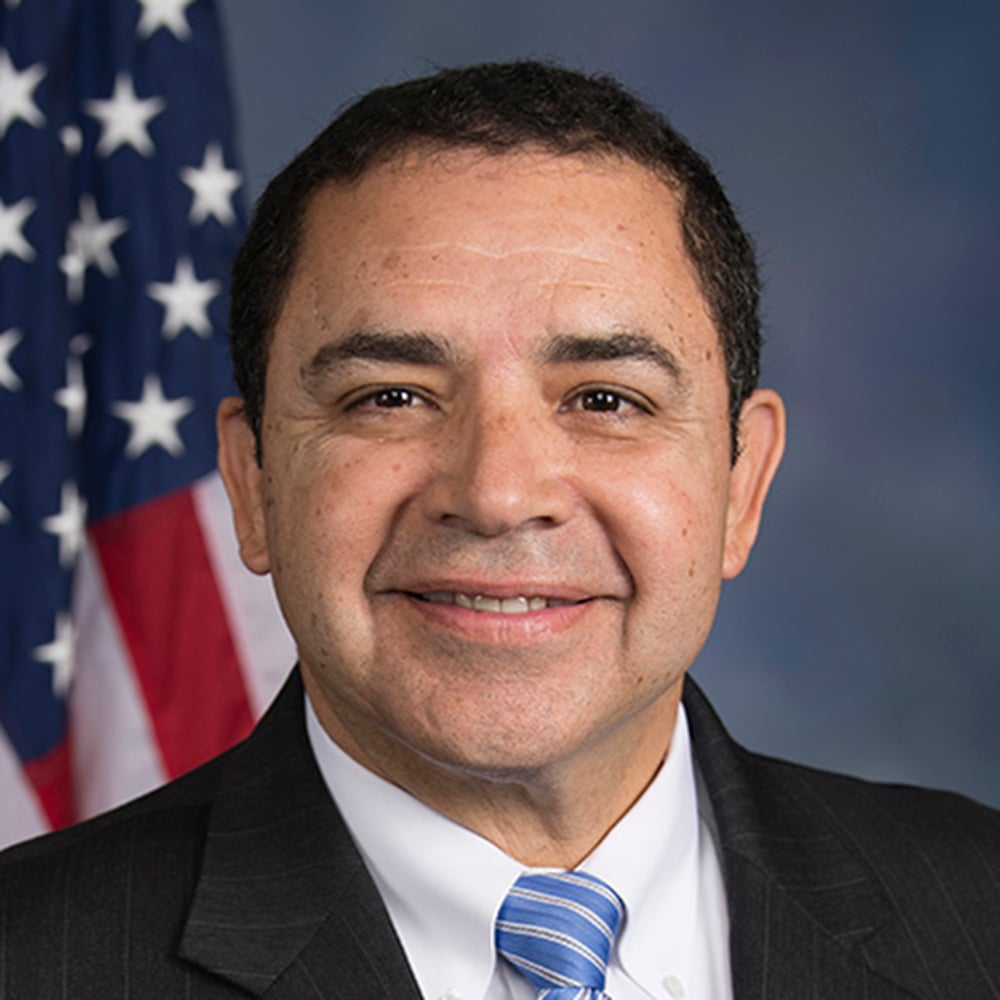Good luck. It’s not going to be easy.
A grass-roots Democratic group that helped power the upset victory of Rep. Alexandria Ocasio-Cortez, D-N.Y., has identified a Texas Democrat as its first target ahead of the 2020 congressional primaries — but as of now, Ocasio-Cortez herself is staying neutral.
Justice Democrats, a political committee founded after the 2016 election to reshape the Democratic Party through primary challenges, is working to recruit a challenger to Rep. Henry Cuellar, a seven-term congressman from a strongly Democratic district who’s one of the few anti-abortion-rights voices in the party’s House conference.
In a statement, the group compared Texas’s 28th Congressional District, which gave the president just 38.5 percent of the vote in 2016, to other districts where left-leaning candidates have unseated incumbents. It is launching a “primary Cuellar fund” to encourage any potential candidate that there will be resources if he or she jumps into the race.
“There’s an Ocasio-Cortez and [Massachusetts Rep. Ayanna] Pressley in blue districts across America, tired of seeing long-standing incumbents serve corporate interests, work with Trump’s agenda, and work against the progressive movement,” said Alexandra Rojas, the executive director of Justice Democrats. “These grass-roots leaders just need a little bit of encouragement and support.”
[…]
The Justice Democrats’ campaign to oust “corporate Democrats” was restarted after the 2018 elections, with Ocasio-Cortez, one of her party’s biggest stars, as its de facto spokeswoman. In a mid-November call with activists, Ocasio-Cortez said that they could “save this country” by either shaming incumbents out of accepting “money from oil and gas companies” or by ousting them at the polls.
“We’ve got to primary folks,” said Saikat Chakrabarti, who would become the congresswoman’s chief of staff.
But Ocasio-Cortez is not intervening in the “primary Cuellar” campaign right now. In her first days in office, the congresswoman has publicly criticized a House rule that required offsets for any spending increases, while privately working to get appointed to at least one committee with jurisdiction over taxes or health care.
While she was not appointed to the Ways and Means Committee after a left-wing campaign on her behalf, Ocasio-Cortez is expected to get a seat on the Financial Services Committee. She is not part of Justice Democrats’ primary recruitment push.
As the story notes, Cuellar gave Democrats in Texas another reason to be annoyed with him when he contributed to Republican Rep. John Carter’s re-election campaign. Let’s state up front that it’s hard to defeat an incumbent in a Congressional primary in Texas. Since 1992, by my count it has happened four times in a Democratic race:
1994 – Sheila Jackson Lee defeats Rep. Craig Washington
2004 – Al Green defeats Rep. Chris Bell
2004 – Henry Cuellar defeats Rep. Ciro Rodriguez
2012 – Beto O’Rourke defeats Rep. Silvestre Reyes
The two from 2004 have an asterisk next to them, as they came after the DeLay re-redistricting of 2003, which made each of those incumbents’ districts less hospitable to them. Most years most incumbents face no or token opposition. It’s no easier on the Republican side, as only two incumbents have been ousted during this time. Ron Paul knocked off Greg Laughlin in 1996 after Laughlin had switched parties following the 1994 election, and John Ratcliffe beat the 91-year-old Ralph Hall in 2014.
Anyway. Washington had some ethical issues and a high rate of missing votes at the time SJL took him out. Bell’s CD25 was taken out of Harris County and replaced with CD09, which was drawn to elect an African-American Democrat. CD28 was redrawn to include Webb County, which heavily favored the Laredo-based Cuellar. The 2012 race was the closest thing on this list to an ideological race, but Reyes also had some ethical issues that O’Rourke hit on.
The two ideology-based primary races I can think of are Ciro Rodriguez’s rematch against Cuellar in 2006 (he lost 53-40 in a three-candidate contest) and Adrian Garcia against Gene Green in 2016 (Green prevailed, 57-39, in another three-candidate race). There’s not a viable model in the state for the Justice Dems to follow, is what I’m saying. If they want my advice, I’d say find a candidate with deep ties to the Laredo area, and make your main issue Cuellar’s too-close ties to Republicans. Try to pin him to Donald Trump, if only by association. Downplay as much as you can any and all support your candidate will receive from outside the district and outside the state. And good luck. I wouldn’t advise anyone to get their hopes up, but one never knows.


Richard Raymond used to be discussed, but I haven’t heard his name in awhile. Justice Democrats could start recruiting by calling him though.